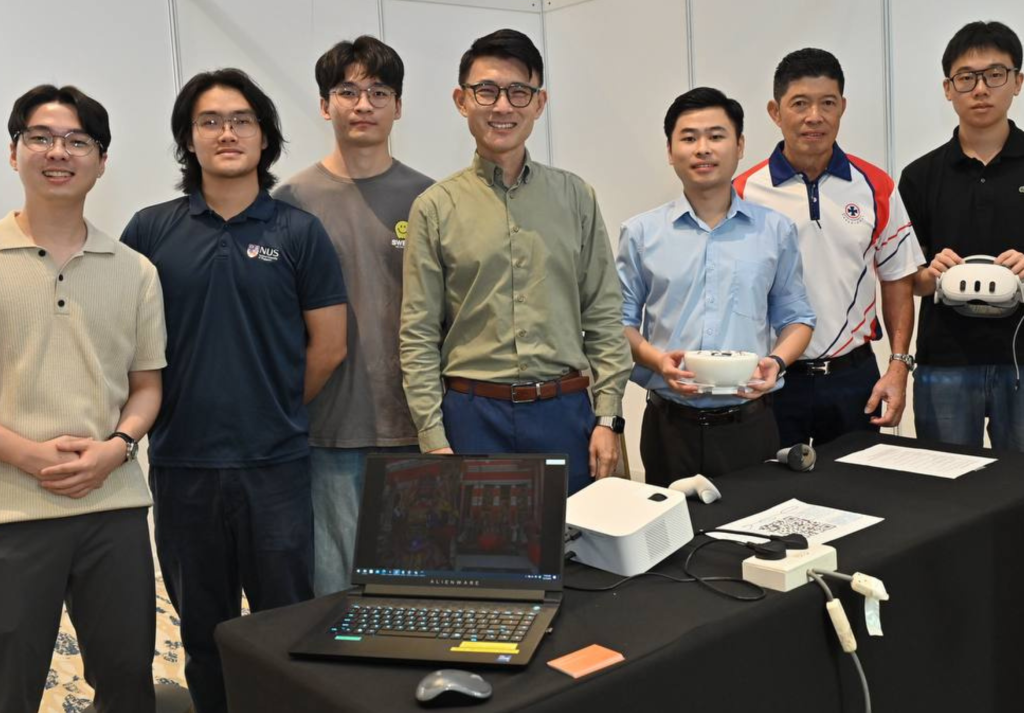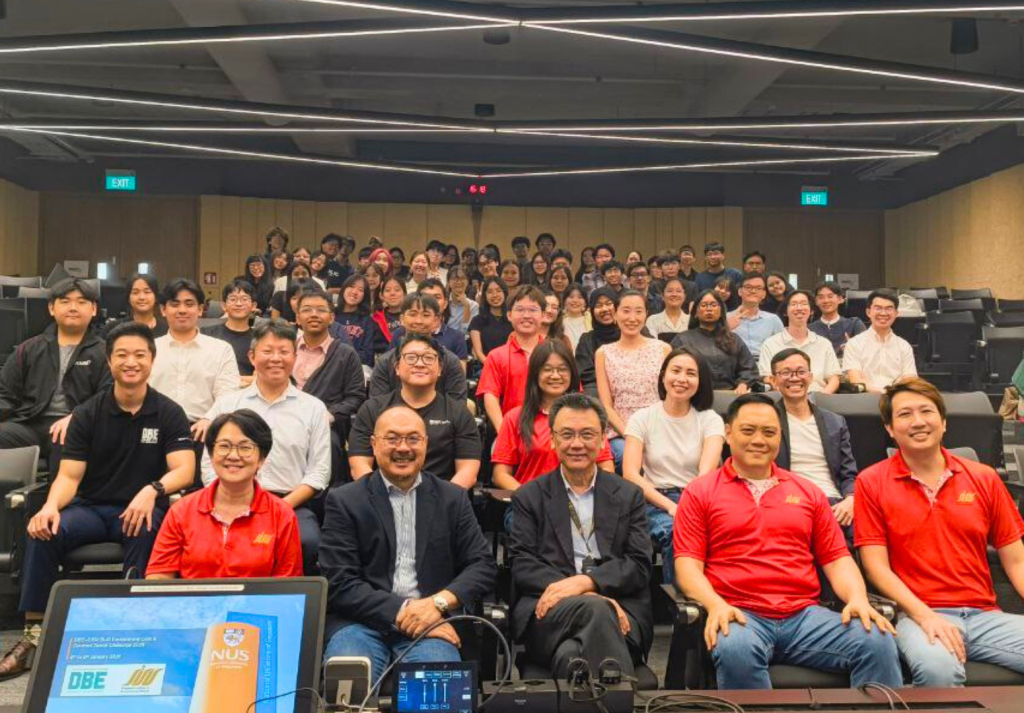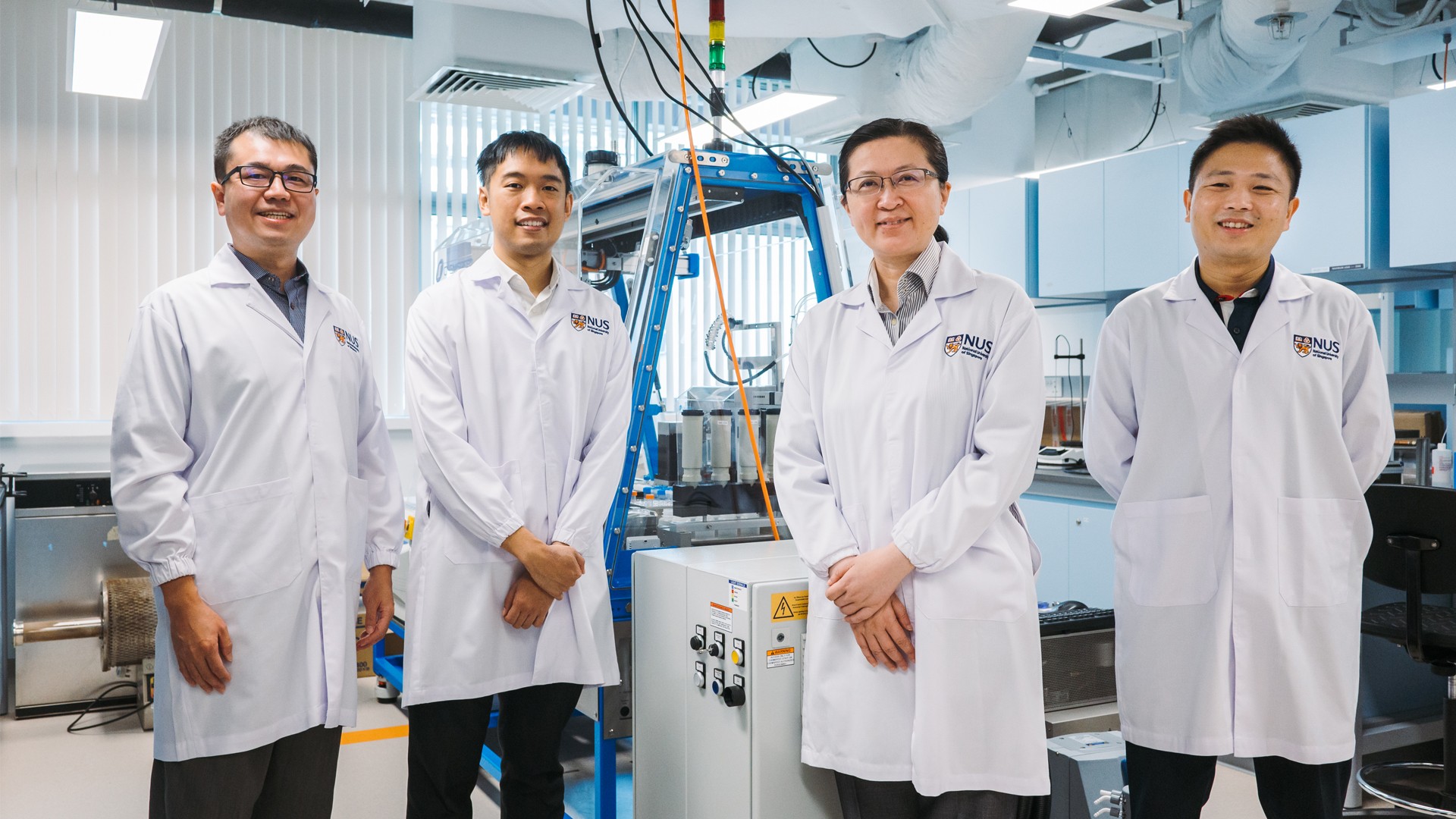
NUS has announced the launch of a S$25m hydrogen energy research centre with the aim of developing breakthrough technologies to enable a hydrogen economy and make hydrogen commercially viable as a green energy source.
The Centre for Hydrogen Innovations (CHI) is led by Professor Liu Bin, head of the Department of Chemical and Biomolecular Engineering at the College of Design Engineering (CDE).
The new centre, the first such institute in South-East Asia, has received a S$15m endowed gift from Temasek. With additional funding from NUS, the CHI has a total starting investment of S$25m.
In the first phase, the Centre's primary focus will be on hydrogen carrier and supply chain studies, tackling some of the key technological and infrastructural challenges in enabling a hydrogen economy.
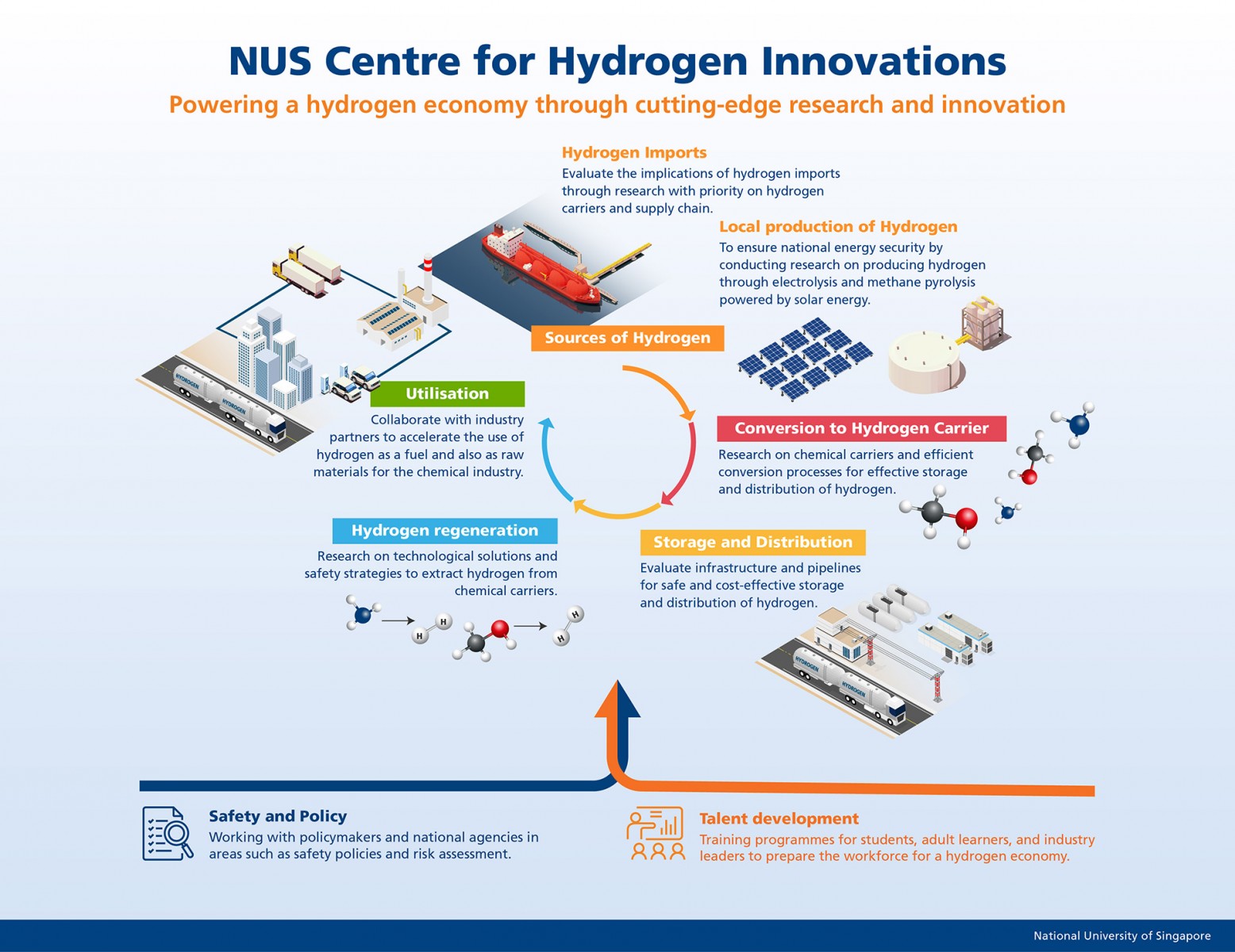
Research at the Centre will initially focus on projects creating disruptive technologies related to building a hydrogen economy in Singapore - many of which are led by researchers from CDE.
Prof Liu, Director of the new centre who also established the NUS Green Energy Programme, said the CHI would leverage expertise from across NUS to "provide thought leadership, cutting-edge science and technologies and foster collaborations to catalyse breakthroughs and innovations in the global hydrogen economy."
"Through the new centre, we aim to advance hydrogen-related R&D in Singapore to solve high-value problems that can significantly bring down the cost of green hydrogen as a fuel. At the same time, we will provide talent training for both academia and industry to grow the pool of hydrogen-related researchers, as well as up-skill the workforce to prepare Singapore for a hydrogen economy."
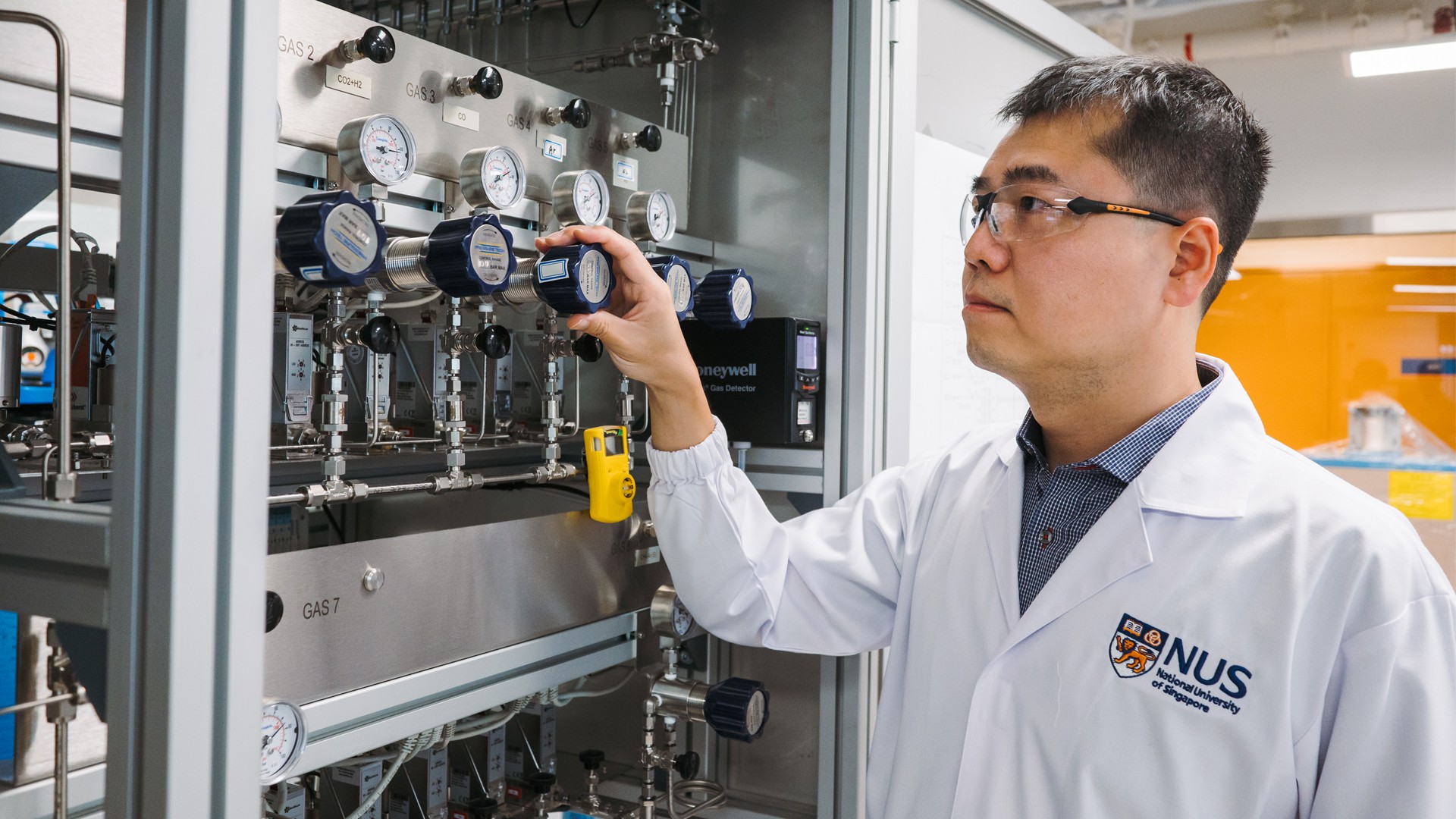
| Green hydrogen
Hydrogen is the most abundant element in the universe and has long been seen as a potential alternative energy source due to its low-carbon footprint. However, the high costs involved in producing, storing and transporting hydrogen have been a significant barrier to adopting hydrogen as a green fuel. To create a sustainable hydrogen economy, researchers are focusing on technologies to enable the commercial production of green hydrogen - created using renewable energy instead of fossil fuels. Produced on a mass scale, green hydrogen could provide clean power for manufacturing, transportation, and more - and its only byproduct is water. |
Among the initial research projects at the Centre, one team led by Associate Professor Yan Ning from the Department of Chemical and Biomolecular Engineering will be looking to develop more energy-efficient and greener methods of extracting hydrogen from ammonia.
Ammonia is known to be an effective carrier of hydrogen and a potential carbon-free fuel, but current processes for extracting hydrogen from ammonia are technically complex.
Another innovative project led by Assistant Professor Lum Yanwei and Assistant Professor Wang Lei - both also from the Department of Chemical and Biomolecular Engineering - will be looking at how hydrogen could be converted directly from water into a high-energy density liquid hydrogen carrier.
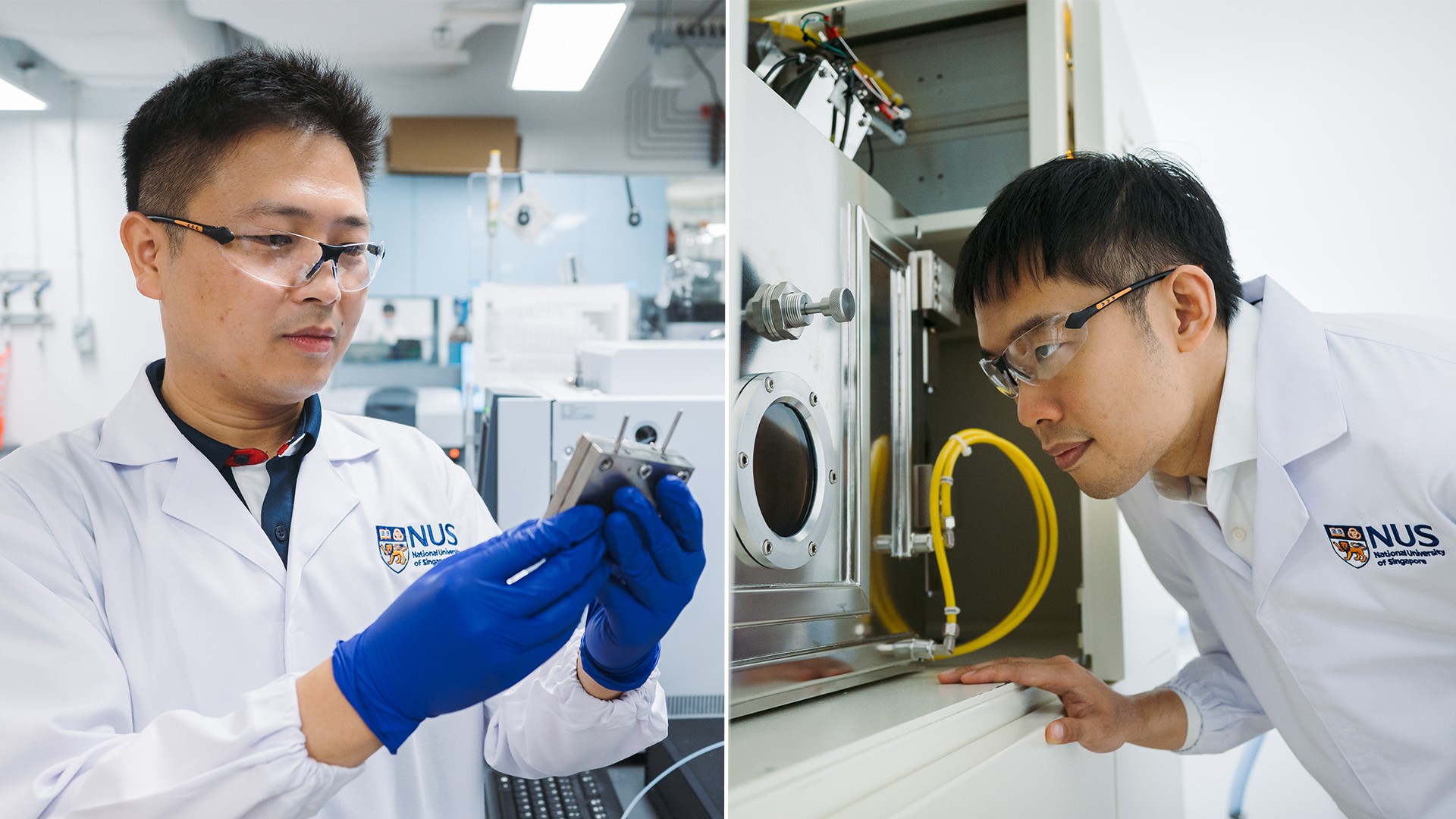
Such a breakthrough would bypass the step of extracting hydrogen from water to form hydrogen gas, avoiding the safety hazards and costs involved in transporting, storing and utilising hydrogen.
Looking to boost local on-demand production of hydrogen, another CHI project led by Associate Professor Wang Qing from the Department of Materials Science and Engineering aims to use a novel battery system that can combine electricity storage and hydrogen production.
Using specially formulated chemicals, powered by renewable energy such as solar, the system allows for stable hydrogen production and electricity storage. The research team says the stored electricity could be used to charge electric cars or supply Singapore's power grid.
The CHI will also offer training programmes to build a talent pool of expertise and personnel trained in the skills and knowledge required to enable the different components of a hydrogen economy.
These programmes will include degree programmes, as well as short courses and certificates to target undergraduate, and postgraduate students, adult learners, policymakers, and industry leaders.
The Centre's governance board provides strategic direction and stewardship and comprises leaders from the academic, government and corporate sectors in Singapore and overseas
Professor Ho Teck Hua, NUS Senior Deputy President and Provost and co-chair of the governance board, said: "The Centre for Hydrogen Innovations will conduct ground-breaking research on making green hydrogen affordable for Singapore. The Centre and the existing NUS Green Energy Programme, which focuses on carbon capture and utilisation, are both key to NUS' strategy of offering world-class, innovative solutions to reduce our reliance on fossil fuels as a source of energy."
For more, see the press release from NUS News.




